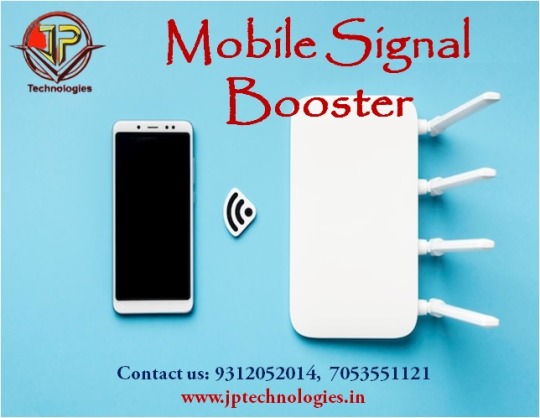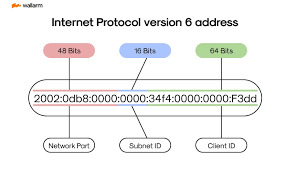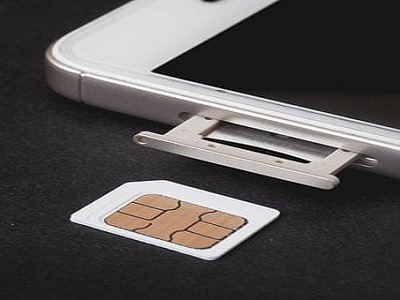#MobileNetworking
Explore tagged Tumblr posts
Text
#MobileIP#MobilityManagement#NetworkMobility#MobileNode#HomeAgent#ForeignAgent#CareOfAddress#IPMobility#IPv6#IPv4#NetworkEntities#Routing#PacketForwarding#SeamlessMobility#MobileNodeRegistration#AgentAdvertisement#LocationUpdate#SessionPersistence#MobileData#Connectivity#Roaming#UserMobility#DynamicIP#MobileNetworking#InternetProtocol#NetworkArchitecture#RoutingProtocols#DataTransfer#Handoff#MobileCommunications
0 notes
Text
Mobile Signal Booster
Are you tired of bad mobile signal? J P Technologies has just launched a revolutionary mobile signal booster to help you get better reception wherever you go. With this new booster, you can enjoy consistent and strong signals even in the most remote areas. Try it today and never worry about dropped calls again!
Contact us: 9312052014, 7053551121
For more detail visit us: www.jptechnologies.in

#signalbooster#mobilesignalbooster#jptechnologies#nomoredroppedcalls#enhancedsignal#boostyoursignal#techgadgets#mobilenetwork#clearcalls
1 note
·
View note
Text
#quality#Ericsson.#RAN#5G#Omdia#TelecomLeadership#Connectivity#MobileNetworks#NetworkInnovation#5GAdvanced#Timestech#TelecomInsights#RANVendors2025#electronicsnews#technologynews
0 notes
Text

[2025-06-01 image ©IEE Spectrum] It is only 5 or 6 years until 6G will be introduced into our phone networks. Now, 2025 we really do not have 5G established so why 6G?
Remember 2020 when 5G was being built, it was built as an add on to 4G, 5GNR was only the radio bit that was 5G. This meant that all the benefits of 5G that we hoped for did not come about - hence the poor reputation 5G had. Now 5G SA [Stand Alone] is being built in the UK and kt is likely to be 5-6 years until that is really established. So do we need 6G? Indeed there have been calls to stop this new generation each decade and go for incremental developments.
So will 6G be faster than 5G? Well network speed is really dependent on the frequency used; and we are quickly running out of available frequencies. At the start of 5G , one US mobile operators started with mmWaves and they quickly found this was not the solution. Yes mmWaves have a place but their range is very limited and hence their usefulness is also limited. To run a mobile network over distances the frequencies needed are 3.4GHz-3.8GHz (as used in 5G) or 5GHz (as used in WiFi) or 6GHz. The last one, 6GHz range is now under discussion, or rather interested parties have indicated they need that range including WiFi and the mobile networks. Also in that range is the 4GHz frequency currently used by TV, due to be switched off in Uk in 2030. That would free us another chunk of suitable frequency for mobile comms. We always have to remember that the availability of suitable frequency is the main constraints on mobile phone networks and the reason why we have such complex protocols designed to use the scarce resource in the best possible manner.
So will we see 6G in 2030? Maybe, maybe not. But what we need to consider is what 6G will give us that 5G will not. That discussion is for another blog entry.
0 notes
Text
5G Services Market Overview: Extensive Evaluation of Market Size, Share, Growth Opportunities
The respected writer and futurist above, summed up fascinatingly in his words the beauty of advanced technologies and how they can be miraculous for the mankind. 5G services is one of those advanced technologies, which has the capability to boost connectivity not only among humans but also among vehicles, houses and other important devices and infrastructures that form essential part of human life. Multiple benefits of 5G technologies are coming to fore nowadays, as safety from the spreading contagion has become important and social distancing has become a key rule to abide by.

5G Services: Why?
Basically, 5G in telecommunications is fifth generation technology standard for cellular networks, which was planned to be deployed in 2019 itself, but had to be postponed due to global emerging circumstances. 5G is the successor of 4G, which currently the fuel is running most of the cellular phones nowadays. When compared on the basis of capabilities, 5G clearly shows 4G who’s the boss! Also, 5G Services Market is expected to grow at the same speed that 5G has. It is anticipated to reach USD 414.50 billion by 2027, registering a CAGR of 43.9% from 2021 to 2027, according to a new study by Grand View Research, Inc. The reasons why 5G is expected to grow at such speed are -
High Speed - With the arrival of the new generation on the block, speed upgrade is a given for the cellular operators. The fifth generation of cellular network technology will push far beyond 4G LTE. In practical terms, 4G vs. 5G speed enhancements will mean exciting possibilities for consumers. Transferring a high-resolution movie at peak download speeds will go from taking seven minutes to just six seconds. This lowering of download rate means a godsend for the entertainment industry.
Low Latency - Latency is nothing but a measure of how long a signal takes to go from its source to its receiver, and then back again. It has been a very important goal of each generation to lower the latency period. Low latency makes the data transfer almost instantaneous and delay is not at all observed. 5G network will have lower latency that 4G LTE network, with the round-trip transmission of data taking less than five milliseconds. 5G latency will be faster than human visual processing, making it possible to control devices remotely in near-real time, creating a whole set of opportunities for the companies to build upon.
Capacity Boost - When it comes to capacity building, 5G will be 1000x more capable of 4G, which is a good sign for IoT and automation industry. With capacity for hundreds or thousands of devices seamlessly communicating, new applications and use cases for cities, factories, farms, schools, and homes will flourish. With major developments in the sensors market, 5G will prove to be the best friend IoT has ever had until today.
Increased Bandwidth -When high speed comes together with increased network capacity of 5G network, it is common sense that higher amounts of data will be transmitted by the users that what was possible previously. Therefore, 5G networks are architected differently from traditional 4G networks, allowing greater optimization of network traffic and smooth handling of usage spikes. This will prove helpful to many businesses in more ways than one.
Market Factors In A Nutshell
5G services have an unprecedented demand now more than ever. With new technologies and machines coming along, which are making mankind highly dependent on them, 5G services are going to experience growing demands as the days pass us by. Major factors that are playing in the market are -
Growing IoT and Automation need - Smart machines are making a niche for themselves in the world and automation has become a new trend to practice. Also, automation makes human more efficient in their work and when time needs can be a source of good entertainment as well. 5G services has increased speed, which can be used by the self-driven automobiles to scan the surrounding and take immediate decisions when obstacles arise on the roads, which will lead to lesser accidents.
Education Usage -Pandemic has caused a major shift in the education processes all over the world. Large amount of teaching and assessment has shifted online, which has carved a space for the 5G services to fill in, helping governments and education institutions provide uninterrupted education to its citizens.
COVID-19- It has worked as a benefactor as well as a hindrance, when it comes to the establishment of 5G services all over the world. It has worked as a benefactor in a sense that, pandemic and lockdown restrictions have stressed on the importance of 5G services in completing multiple routine works in several fields. However, it has also caused a delay in arrival of 5G infrastructure for the world, as telcos postponed the launch of 5G services due to pandemic.
Competitive Insights
The market for 5G services is highly fragmented as several regional telecom service providers are investing significantly in deploying the next-generation infrastructure. These activities will definitely help the companies in establishing its consumer base, which can be leveraged late, after the launch of services. Also, these companies are strategically focusing on mergers and acquisitions to strengthen their foothold in the global market. Major key players in the industry are AT&T Inc.,BT Group plc, China Mobile Ltd., China Telecom Corporation Limited, Bharti Airtel Limited, KT Corporation, Saudi Telecom Company, Vodafone Group, Deutsche Telekom AG, SK Telecom Co., Ltd., Verizon Communications Inc., NTT Docomo, Telecom Italia, Sprint Corporation and Reliance Jio.a
In-depth report on global 5G services market by Grand View Research:
0 notes
Text
#AirtelOutage#NetworkDown#AirtelIndia#SouthIndia#TelecomNews#ConnectivityIssues#Downdetector#DigitalDisruption#AirtelSignal#MobileNetwork
0 notes
Text
Welcome to IncoShiftz: Your Global Technology Forum for 2025 and Beyond!
🌐 IncoShiftz is your ultimate online resource for everything tech. Established on August 20, 2022, we bring together tech enthusiasts, professionals, and hobbyists from around the world. Whether you're interested in mobile networks, internet trends, gaming, computers, or the latest media news, we provide a space for vibrant discussions and cutting-edge content.
What You Can Find on IncoShiftz:
Mobile Networks & Internet Trends: Stay ahead with the latest in mobile technology, internet innovations, and global connectivity.
Phones & Gadgets: Reviews, comparisons, and tips on the latest mobile devices and tech gadgets.
Gaming: From consoles to PC gaming, we cover all things gaming with news, reviews, and resources.
Tech News: Keep up with the latest developments in the tech world.
Free Resources: Access free tools, tutorials, and guides to boost your tech skills.
Explore IncoShiftz now for a wealth of tech-related content, a thriving community, and up-to-date resources on all things tech. We’re committed to empowering your digital experience in 2025 and beyond!
🔗 Join the IncoShiftz community today Explore IncoShiftz
Why Choose IncoShiftz?

At IncoShiftz, we believe in the power of technology to change lives. Whether you’re a beginner looking for tutorials or an expert sharing insights, our forum caters to all levels. Here's why you should be a part of our community:
Stay Updated: Get the latest tech news and trends directly from professionals and enthusiasts.
Interactive Community: Engage in discussions, ask questions, and share experiences with a like-minded community.
Free Tools & Resources: Access free guides, software, and tutorials to enhance your tech knowledge.
Join Us and Start Exploring:
Visit IncoShiftz Forum
#IncoShiftz#TechForum#TechnologyCommunity#MobileNetworks#InternetTrends#GamingNews#TechResources#TechDiscussion#GadgetLovers#Computing#TechUpdates#TechInsights#TechTrends2025#GamingCommunity#TechSavvy#MobileTech#DigitalContent#TechNews#FutureOfTech#IncoShiftzForum#TechTalk#MobileTechnology#GamingTech#ComputerTech#TechInnovation#DigitalTech#TechTips#TechCommunity#MobileApps#GadgetEnthusiast
0 notes
Text





#netboon#GSMAntenna#PatchPanelAntenna#IndoorOutdoorAntenna#SignalBooster#ImportedAntenna#MobileNetwork#SignalStrength#MobileConnectivity#SignalReception
0 notes
Text
B.Tech - Telecommunication Engineering
B.Tech in Telecommunication Engineering: A Comprehensive Guide
Introduction
Telecommunication Engineering is a dynamic and rapidly evolving field that forms the backbone of modern communication systems. From mobile phones to the internet, satellite systems to radio waves, telecommunication engineers work at the intersection of technology and communication. A B.Tech in Telecommunication Engineering equips students with the knowledge and skills needed to design, analyze, and implement various communication technologies.
What is Telecommunication Engineering?
Telecommunication Engineering involves the design and development of communication systems, including both hardware and software, to transmit data over long distances. The discipline includes systems such as mobile networks, satellite communications, optical networks, and wireless communication. The core of telecommunication engineering lies in enabling seamless communication through various mediums such as sound, video, and data signals.
In simple terms, telecommunication engineering combines elements of electrical engineering, computer science, and information technology to help devices communicate effectively with one another.
Why Pursue B.Tech in Telecommunication Engineering?
Telecommunication is a sector that is constantly evolving. With the increasing demand for faster data transmission, higher-quality calls, and more reliable internet services, this field has become indispensable to the global economy. Pursuing a B.Tech in Telecommunication Engineering provides students with both theoretical and practical knowledge of this field, allowing them to contribute to its growth and development.
Here are some reasons to pursue a B.Tech in Telecommunication Engineering:
Technological advancements: The field is continuously innovating with the advent of 5G, Internet of Things (IoT), and other communication systems.
High demand for professionals: The industry constantly needs engineers skilled in designing and maintaining communication networks.
Diverse career opportunities: Graduates can work in various domains, including mobile communication, satellite communication, and even emerging fields like quantum communication.
Global reach: Telecommunications is a worldwide industry, and a career in this field can lead to opportunities on a global scale.
Duration and Structure of the Program
The B.Tech in Telecommunication Engineering is typically a 4-year undergraduate program that is divided into 8 semesters. Each semester includes a blend of theoretical and practical coursework, including lab work and internships, to give students hands-on experience. The program is designed to develop the skills necessary for the design, operation, and maintenance of communication systems.
Some institutions may also offer specialized courses or electives in areas such as wireless communication, optical fiber communication, satellite communication, and data transmission.
Curriculum Overview
The B.Tech in Telecommunication Engineering curriculum includes various subjects that cover the fundamental principles of telecommunication, electronics, and network systems. Below is a general breakdown of the subjects typically covered throughout the four years:
Year 1: Foundation Courses
Mathematics I & II: Introduction to calculus, differential equations, and linear algebra, which are essential for solving engineering problems.
Physics: Basics of electromagnetism, wave phenomena, and materials science.
Electrical Engineering: Introduction to basic electrical circuits and systems.
Engineering Drawing: Learning the basics of designing and drafting systems.
Computer Programming: An introduction to programming languages like C, which is crucial for developing software solutions.
Environmental Science: A study of the impact of engineering on the environment.
Year 2: Core Telecommunication Subjects
Analog and Digital Electronics: Study of electronic components and circuits used in telecommunication.
Signals and Systems: Understanding the principles of signal transmission, analysis, and filtering.
Electromagnetic Field Theory: Study of electromagnetic waves and how they are used in communication systems.
Communication Systems: Introduction to basic communication systems like AM, FM, and digital communication.
Network Theory: Basics of networking, including concepts of switches, routers, and data transmission protocols.
Control Systems: Fundamentals of control theory applied to communication systems.
Year 3: Advanced Communication Topics
Digital Communication: Study of advanced techniques in data transmission, including coding and modulation.
Microwave and Optical Communication: Understanding of microwave transmission and fiber optic systems.
Mobile Communication: Study of wireless networks, cellular systems, and mobile technologies like 3G, 4G, and emerging 5G systems.
Antenna Theory and Design: Design and analysis of antennas used for various communication systems.
Communication Networks: In-depth study of network architecture, data transfer protocols, and network security.
VLSI (Very Large Scale Integration) Design: Introduction to the design and integration of circuits used in telecommunication systems.
Year 4: Specialization and Project Work
Wireless Networks: Detailed study of wireless technologies, including Wi-Fi, Bluetooth, and future wireless communication standards.
Satellite Communication: Understanding of communication via satellites and their applications in global communication.
Internet of Things (IoT): Learn about the interconnection of devices through the internet and its applications in telecommunication.
Communication Security: Focus on encryption, security protocols, and preventing data breaches in communication systems.
Project Work: Students work on real-world projects, often in collaboration with industries, to apply their theoretical knowledge.
Internship: Hands-on experience working in a telecommunication company or research lab.
Skills Acquired During the Program
Throughout the B.Tech in Telecommunication Engineering, students develop a wide range of technical, analytical, and problem-solving skills, including:
Communication skills: The ability to convey complex technical concepts clearly.
Analytical thinking: The ability to troubleshoot, analyze, and solve issues in telecommunication systems.
Programming skills: Knowledge of various programming languages like C, C++, and Python, useful in software development and networking.
Teamwork: Working collaboratively in teams to develop and test communication solutions.
Hands-on experience: Proficiency in using communication equipment, software tools, and simulation tools like MATLAB and LabVIEW.
Career Opportunities
Telecommunication engineers are in demand globally, with ample opportunities in various industries. Some of the career roles available to graduates include:
Telecommunication Engineer: Design and manage telecommunication systems, ensuring efficient data transmission.
Network Engineer: Design, implement, and maintain network systems for businesses, governments, and telecom companies.
Mobile Communication Engineer: Specialize in the design and implementation of mobile networks, including 3G, 4G, and 5G technologies.
Satellite Communication Engineer: Focus on satellite communication systems, ensuring global data transmission capabilities.
R&D Engineer: Work in research and development, creating new technologies and systems to improve communication.
Network Security Engineer: Protect networks and systems from cyber-attacks and ensure secure data transfer.
System Administrator: Manage and optimize communication and network systems for various organizations.
Project Manager: Oversee large-scale telecommunication projects, ensuring timely and cost-effective completion.
Industries Hiring Telecommunication Engineers
Graduates of a B.Tech in Telecommunication Engineering have a wide variety of industries and companies to choose from. Some of the key employers include:
Telecom Service Providers: Companies like Airtel, Vodafone, and Jio are always in need of qualified engineers.
Network Equipment Manufacturers: Companies like Cisco, Ericsson, and Huawei.
IT and Software Companies: Firms like Infosys, Wipro, and TCS provide telecommunication-related services.
Research and Development Firms: Work on cutting-edge technologies in telecom and related fields.
Satellite Companies: Companies focused on satellite communication, such as SpaceX and ISRO.
Government Agencies: National and international bodies require telecommunication engineers for projects and infrastructure development.
Conclusion
B.Tech in Telecommunication Engineering offers a blend of theory, practical skills, and hands-on experience in one of the most vital sectors of modern society. The course is designed to prepare students for a future in which telecommunication technologies continue to evolve, offering countless opportunities in both the public and private sectors.
Whether it's enabling faster internet speeds, creating the next-generation wireless networks, or working on global communication infrastructure, telecommunication engineers play a vital role in shaping the world’s future. With advancements in 5G, IoT, and satellite communications, the demand for skilled professionals in this field is higher than ever before.
If you're passionate about technology, communication, and problem-solving, pursuing a B.Tech in Telecommunication Engineering can lead to a rewarding and dynamic career.
#TelecommunicationEngineering#BTech#TelecomEngineering#EngineeringDegree#TechCareer#TelecomIndustry#MobileNetworks#Networking#5GTechnology#WirelessCommunication#FiberOpticTechnology#SatelliteCommunication#IoT#TelecomJobs#TechInnovation#TelecomEngineers#EngineeringStudents#FutureOfTelecommunication#EngineeringEducation#STEMCareers#TechnologyAdvancements#TelecomCareer#TelecommunicationSystems
0 notes
Text
Indus Tower: Your Premier Choice for Mobile Phone Tower Installations
Elevate your network with Indus Tower’s expert mobile phone tower installations. We offer superior service and technology to enhance connectivity and reliability. Choose Indus Tower for the best in telecom infrastructure.
0 notes
Text
20 Months in Review: The Journey to 12 Million Subscribers
About Client: The client is a top-tier mobile network operator in Africa, providing voice, SMS, data, mobile money, and other integrated telecom services to 30 million subscribers across Africa.
Objective: The client’s goal is to create a digital platform that can deliver unique digital experiences for next-gen subscribers and help them achieve their market goals. They aim to launch unique offerings and pricing models for both prepaid and post-paid services in a competitive market like Uganda.
Agile Methodologies: We adopted agile methodologies to deliver our solution. This approach allowed us to respond quickly to changes and deliver the solution in a timely manner, thereby ensuring customer satisfaction.

Adapting to Market Conditions: Our ability to adapt to changing market conditions has been a key factor in our success. Our scalable and flexible platform allows us to align our operations with our business goals, ensuring that we are always positioned for success.
Africell Success Story - Case Study (1) (csmart.digital)
0 notes
Text
0 notes
Text

(2024-10-20 image ©wallarm) What is my IP? When connected to the 4G network the page returns an IPv4 address and states, for me at least, IPv6 Not Detected. If I do the same when connected to my home WiFi I get a different IPv4 address; but still no IPv6 address.
Back in the early 1980's when IPv4 addresses were devised it was thought that th system of 4 blocks of numbers 0 to 255 would be enough for all computing devices. But this is not the case any more. The router at home has an IPv4 address, and all the computing devices have a local address, an address relative to the router address. If you wish to connect to an IP camera or a web site on your home network then you will use a port on the router, and set up the routing from the port to the device on your router manually. You need access to the router to do this.
Why am I saying all this on a mobile phone technology blog? Well the way my 4G phone connects to Vodafone is similar the way a home router works. A number of Vodafone have the same IPv4 address and Vodafone routes the data to the correct phone. This does mean I cannot run a camera or web server on the Vodafone network unless I persuade then to give me a unique static IPv4 address.
IPv6 came along a decade later when IPv4 addresses were running out. It is a testimate to our ingenuity to state the IPv4 still works in 2024. With 128bits IPv6 addresses can uniquely identify any device with a chip in it now and decades to come. Anyone who has smart devices at home could have say 60 devices connected to their home router, which would need 60 IPv6 addresses which is easy to obtain and so each device can have a unique IP number. Despite IPv6 being over 30 years old we still have not switched over. But if we did then mobile phone technology would be in a better place to have more and more devices connected to the network and addressable from anywhere, with no restrictions. This would open up mobile networks as a more direct competitor to land bases systems, allowing more applications.
1 note
·
View note
Link
5G Technology and Mobile Internet: The Future of Mobile Connectivity | CeBoz.com
This blog post explores how 5G technology and mobile internet will transform the way we communicate, work, and live in the near future.
#5Gtechnology#mobileinternet#wirelessconnectivity#telecommunications#mobilenetworks#internetspeed#futuretechnology#digitalcommunication#mobileconnectivity#networkinfrastructure
0 notes
Text
#TMobile#UScellular#TelecomNews#WirelessIndustry#FCC#RuralConnectivity#MobileNetworks#5G#ConsumerRights#PriceHike#TechNews#BroadbandAccess#WirelessMerger#DigitalDivide
0 notes
Text
Maximizing Value: How to Get the Most from Your Smartphone Plan

Smartphones are become an indispensable component of our everyday life. They keep us informed, entertained, and connected. However, the expenses of smartphone plans may quickly pile up. To get the most out of your investment, you must understand your plan, monitor your consumption properly, and then look at various cost-cutting solutions.
The first step in making the most of your smartphone plan is to properly grasp it. Determine your data cap and how it corresponds to your regular consumption. Excessive data usage may result in extra costs.
Examine the minutes and texts contained in your plan. You may converse without worrying about extra expenses if you have limitless alternatives. Examine your contract conditions and any early termination costs. Understand the price of using your phone overseas if you travel internationally.
One of the most valuable aspects of a smartphone plan is data. Connect to Wi-Fi networks whenever feasible to maximize its usefulness and limit data consumption. Take advantage of free Wi-Fi at home, work, and public areas. Keep an eye out for programs that consume a lot of data. Some apps may eat data while running in the background. To conserve data, restrict or delete useless programs. To avoid overages, many smartphones allow you to set data consumption warnings or limitations.
Consider a family plan if you have many lines in your home. When compared to individual plans, these arrangements can yield considerable savings per line. You may also share data allowances, which can save money.
Prepaid plans provide flexibility without the need for a contract. They can be inexpensive and are appropriate for individuals who do not require the most recent flagship smartphones.
Before you upgrade your smartphone, examine whether you absolutely require the most recent model. Newer phones can be costly, and the changes between models may not have a substantial influence on your everyday usage. Keeping your existing gadget can help you save money.
Examine your carrier's discounts, promotions, and loyalty incentives. You may be qualified for savings through your work or group, or special pricing depending on your usage history. If you've been a long-term client, don't be afraid to bargain with your carrier. To maintain your business, they may offer you better terms, lower prices, or extra incentives. Examine any extra services or features to which you've subscribed, such as insurance, roadside assistance, or premium content. Check to see if you're utilizing them, or cancel any unwanted add-ons.
Your smartphone plan requirements may evolve over time. Regularly examine and adapt your strategy to ensure it still fits your needs. Based on your current usage patterns, you may discover that a different plan or provider provides greater value.
By following these steps, you may get the most out of your smartphone plan while also maximizing its value. Smart plan management not only saves you money but also guarantees that your smartphone improves your life without depleting your wallet.
Visit our website https://www.unlimitedsimplans.com/.
#MobileData#MobileNetwork#smartphones#mobilesim#MobileSimPlans#mobileplans#simplans#NextelleWireless
0 notes